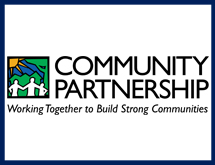Mental Wellness in the Workplace
Community Connections - Making A Difference Top Tips from Community Partnership of the Ozarks
Many people spend a significant number of hours during their life at work and are around coworkers almost as much as their own family. It is important to look out for one another and keep mental wellness a priority. You may be wondering, why is it important to talk about mental health in a work environment? According to the Centers for Disease Control (CDC), poor mental health and stress can negatively affect employee job performance and productivity, engagement with one’s work, communication with coworkers, and physical capability and daily functioning. It is important to promote a positive culture in the workplace by having open conversations about mental health. These conversations can create a safe and supportive work environment for everyone.
To be the best and healthiest version of yourself, it is important to recognize that reaching out is a sign of strength, not weakness. It is okay to not be okay, and if you need help, keep in mind that help may look different for everyone. This could be engaging in self-care like exercising or journaling, or simply taking a break for yourself to refuel. Sometimes finding the time for self-care can be difficult, but it is important in maintaining good overall mental wellness. Set boundaries for yourself and don’t always put others’ needs before your own. Take time to establish a self-care action plan for yourself and make this part of your daily routine.
While being mindful of our own mental wellness is key, there are things that we can do to also support the mental wellness of coworkers. Be aware of changes in their behavior, feelings, appearance, and interests. If there are noticeable changes in these areas, be honest and tell them you have noticed these changes, letting them know you care about them and are there for them if they want to talk. You can also provide them with information on resources that may be helpful to them. For more information about mental health resources, visit www.cpozarks.org/mentalhealth. If you believe a coworker is experiencing a mental health crisis, it is important to seek help immediately. This could be calling the National Suicide Prevention Lifeline at 988 or 1-800-273-TALK or calling 911 if someone is in immediate physical danger.
Community Partnership of the Ozarks offers trainings that help better equip you and your organization to be there to meet these needs. Mental Health First Aid (MHFA) is an interactive program designed to educate adults on the signs and symptoms of a mental health challenge or crisis and how to appropriately interact with that person using a five-step action plan. QPR (Question Persuade Refer) training focuses on suicide prevention that helps participants learn the warning signs of suicide, how to interact with a person exhibiting those signs, and how to connect them to appropriate assistance. These trainings can help participants learn crucial information and equip them with the skills needed to support someone experiencing a mental health challenge or crisis while also reducing the stigma associated with mental health.
If you are interested in attending an upcoming MHFA and/or QPR training, email prevention@cpozarks.org or call Community Partnership of the Ozarks at 417-888-2020.

